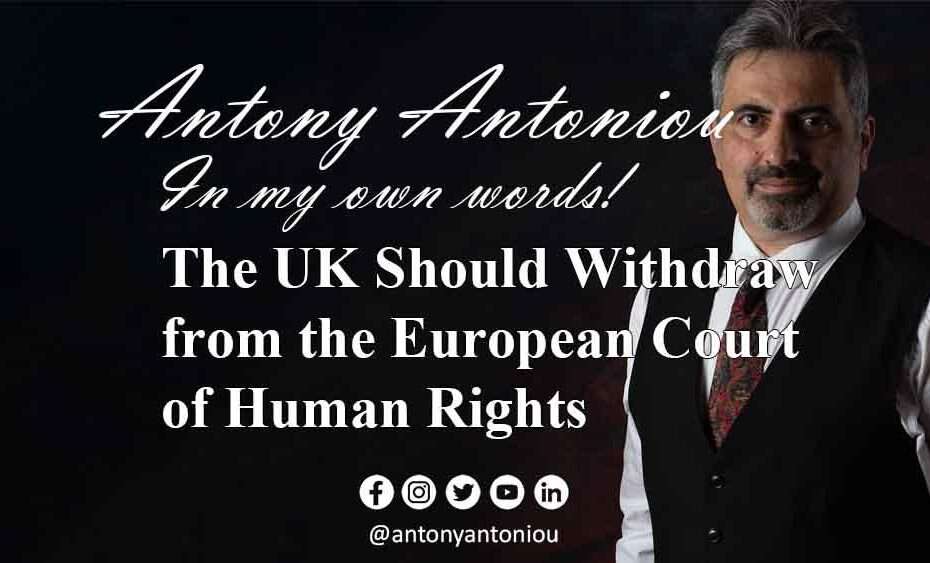The UK Should Withdraw from the European Court of Human Rights
The European Court of Human Rights (ECHR) has recently come under scrutiny in the UK for its role in shaping policies related to immigration and human rights. In a recent YouTube video, commentators discuss whether the UK government should withdraw from the ECHR and what impact this could have.
What is the ECHR and why is it controversial?
The ECHR was established after World War II to uphold basic human rights across Europe. It oversees implementation of the European Convention on Human Rights. The court issues binding rulings on whether countries have violated these rights.
As one commentator points out, the ECHR essentially creates new laws by interpreting the Convention’s broad principles. Its judgments can even overturn UK Supreme Court decisions. Many in the UK see this as an unacceptable infringement on British sovereignty. There is a sense that the ECHR impedes the government’s ability to control immigration and carry out the will of voters.
Should the UK withdraw from the ECHR?
Some argue that leaving the ECHR would diminish human rights protections in the UK. However, one speaker dismisses this, noting that Britain led efforts to institute human rights globally when it had an empire. The implication is that traditional British values sufficiently uphold human rights without the need for external oversight.
There are also arguments that withdrawal from the ECHR is unnecessary to resolve immigration issues. As one panelist states, the government can stop migrant boats under international law without leaving the Convention. Once migrants reach the UK the ECHR becomes relevant, but preventing entry in the first place would avoid this.
Is the ECHR a distraction from wider government failures?
One commentator argues strongly that the focus on the ECHR is a distraction from the government’s lack of progress on its immigration promises. Under Conservative leadership, legal and illegal immigration rates have hit record highs. Measures like the Rwanda deportation scheme are predicted to affect only a small percentage of arrivals.
There is criticism that while the ECHR makes for attention-grabbing headlines, it obscures the Conservatives’ inability to control migration numbers. This broken promise is seen as contributing to problems like long NHS waits and the UK’s housing shortage.
What about the social impact of high migration?
Beyond economics, one speaker raises concerns about the rapid pace of demographic change brought by high immigration levels. Over one million migrants legally entered the UK last year alone.
The argument is that such a swift shift risks damaging the nation’s social fabric if new arrivals do not integrate. Multiculturalism only works if core values evolve gradually in tandem. Otherwise, isolated communities form, preventing social cohesion. There are fears of the UK becoming a profoundly divided society.
Final thoughts
The debate over the ECHR touches on issues of national sovereignty, immigration control, and social stability. Withdrawal from the court appears unlikely to fully resolve concerns over increasing migration levels. Yet debate continues around whether an external human rights body should wield such influence over UK laws.
Going forward, the government faces pressure from multiple angles. It must demonstrate progress on bringing immigration numbers down to ease social pressures. At the same time, walking away from European human rights institutions risks accusations of diminished commitments to rights protections. Striking the right balance will prove a complex challenge.
Key Takeaways
• The European Court of Human Rights (ECHR) is seen as overreaching by some in the UK for its ability to shape laws and overturn court rulings
• Withdrawing from the ECHR may not resolve immigration issues as the government can block boats under international law
• There are arguments the focus on the ECHR distracts from the government breaking promises to control migration
• High levels of immigration risk damaging social cohesion if new arrivals don’t integrate and adopt gradual value shifts
• Leaving the ECHR could lead to accusations of diminished human rights commitments
• The government faces satisfying competing pressures on sovereignty, immigration control, and social stability
In summary, while withdrawing from the ECHR may regain some legal sovereignty, it seems unlikely to fully balance concerns over rising migration and rapid demographic shifts. The debate involves complex trade-offs with vocal arguments on all sides.

